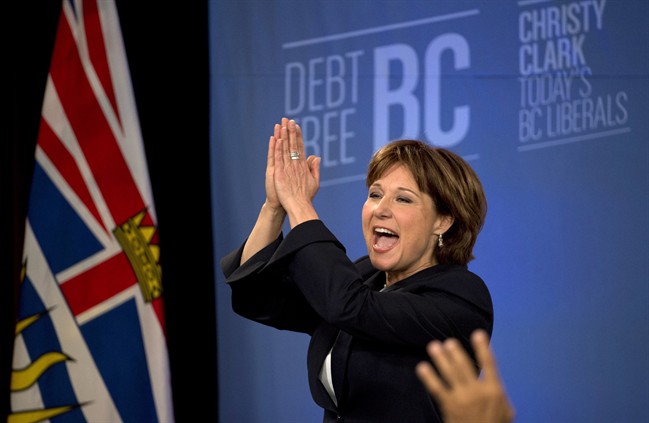With the government’s financial books swimming with cash, it’s not surprising our political parties are racing to out-do each other when it comes to whopping spending plans.

After all, the next election is mere months away so what better time to start throwing money around? And a lot of it is being thrown around.
The B.C. Liberals have just unveiled a $700 million (over three years) plan to help out first-time homebuyers with the down payment on their home. This follows an earlier $500 million to build new housing.
Not to be outdone, the NDP is promising a $10-a-day universal child care program. It won’t provide a price tag, but it’s easy to see how it will cost taxpayers at least $1 billion a year, and probably closer to $1.5 billion.
The NDP also says it intends to get rid of Medical Services Plan premiums, which would cost the government treasury more than $2 billion in lost revenue.
The NDP has yet to explain just how, exactly, its ambitious spending plans would actually be paid for, insisting everyone will have to wait for its election platform-unveiling next year to find out. Fair enough, I suppose.
The two parties aren’t done yet of course. Look for the ruling B.C. Liberals to open the government’s wallet come the next budget to boost assistance rates for the disabled, single parents and low income earners.
One has to assume the NDP will match whatever increases are coming, and then go a bit further.
- Iran fires air defences at military base after suspected Israeli drone attack
- U.S. aid to Ukraine, Israel set to pass. But bills differ in one key area
- Carbon rebate labelling in bank deposits fuelling confusion, minister says
- Conservatives ask interference inquiry judge to rule elections were flawed
None of these spending sprees should come as a surprise. The government is sitting on a budget surplus of at least $2 billion, and the forecast for the next few years calls for healthy surpluses every year.
Now, what about the merits of this kind of spending?
The B.C. Liberals’ plan to help people with their down payments to purchase a home have received negative reviews from some (though not all) economists, who fear it will simply lead to people accumulating more debt than they can afford.
The NDP’s housing critic David Eby first said an NDP government would scrap the program entirely, and then backed off a bit and said if his party wins the next election it simply will stop providing the down payments going forward.
Eby’s slight backdown may result from the fact that, no matter what economists think, this particular plan by the B.C. Liberals is a potential political winner, especially among younger people and — this is a key point — their parents, who won’t have to tap into their savings to provide Junior with his or her down payment.
It’s a populist ploy straight out of former B.C. Premier W.A.C. Bennett’s handbook. He created the first such mortgage assistance program back in the 1960s, and it was popular then and it will be popular now.
A critical point to this plan has been missed by many and it’s one that reflects the political strategy of the B.C. Liberals. The down payment plan is not designed to necessarily help people purchase a home in Vancouver, where prices are off the chart and likely won’t be affected by this program.
Rather, the plan will help people in places like the outer suburbs, where condos are still affordable, and the Victoria-Nanaimo corridor. These areas encompass a fair number of so-called “swing ridings” and this plan may push a number of them into the B.C. Liberals’ win column, which would be disastrous for the New Democrats.
But the NDP may also have winners with its daycare pledge and its promise to scrap MSP premiums. The question here may be whether voters are turned off by the expense of these promises — which the B.C. Liberals will undoubtedly tie to an inevitable tax increase to pay for them — which would reinforce the NDP’s perennial problem when it comes to credibility on the economy.
Or will voters instead be attracted to the populist nature of these plans, thinking they will ease their own financial burden and who cares about a balanced budget?
In any event, the spending sprees aren’t over yet. Voting day is still months away.
Keith Baldrey is chief political reporter for Global BC. This has been reprinted from his weekly column with Glacier Media.



Comments